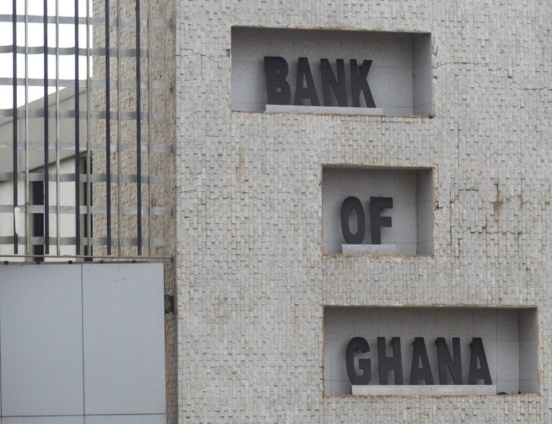Banks profit for the first half of this year went up by about 15.5% to ¢1.9 billion.
However, the earnings is lower than the 36.3% growth registered during the same period last year.
According to the latest Banking Sector Report, the decline in profit levels was mainly due to sharp increases in the three cost elements.
The Central Bank however said the industry remained sufficiently profitable during the first half of 2020 although increases in interest expenses, operational costs and higher loan loss provisions constrained profitability growth.
Growth in net interest income also marginally declined to 16.5% in the first six months of this year.
This is attributed to a much higher increase in interest expenses on the back of increased term deposits and relatively more expensive borrowings.
Interest income, on the other hand, grew by 13.7%, a much lower incremental change than the 9.4 percent a year ago. This partially offset the increase in interest expenses.
However, despite the slowdown in credit growth during the period which affected interest income from loans, increases in investments sustained the overall interest income of banks.
Also, net fees and commissions grew strongly at 10.3% from 3.7% over the period due partly to more usage of electronic banking products and services in the wake of the Covid-19 pandemic.
Operating expenses also shot up by 12.9% during the first half of 2020 from 7.6% a year ago.
This was due to the sharp 17.3% increase in banks’ other operational costs attributed largely to costs associated with the safety protocols and containment measures of Covid-19 as well as activation of Business Continuity Plans during the period.
Return on Assets and Return on Equity Return
Return on Equity which is very dear to the heart of shareholders moderated to 20.6% at end-June 2020 from 21.2% at end-June 2019, largely due to the slowdown in profit growth during half year-2020.
Similarly, Return on Assets (ROA) also dipped marginally during the period to 4.1% from 4.4%.
The profitability indicators however remain strong despite the dip, with the Central Bank concluding that the industry remained profitable despite the pandemic-induced increases in costs.
Latest Stories
-
Ghana and Seychelles strengthen bilateral ties with focus on key sectors
30 mins -
National Elections Security Taskforce meets political party heads ahead of December elections
34 mins -
Samsung’s AI-powered innovations honored by Consumer Technology Association
53 mins -
Fugitive Zambian MP arrested in Zimbabwe – minister
1 hour -
Town council in Canada at standstill over refusal to take King’s oath
1 hour -
Trump picks Pam Bondi as attorney general after Matt Gaetz withdraws
2 hours -
Providing quality seeds to farmers is first step towards achieving food security in Ghana
2 hours -
Thousands of PayPal customers report brief outage
2 hours -
Gary Gensler to leave role as SEC chairman
2 hours -
Contraceptive pills recalled in South Africa after mix-up
2 hours -
Patient sues Algerian author over claims he used her in novel
2 hours -
Kenya’s president cancels major deals with Adani Group
3 hours -
COP29: Africa urged to invest in youth to lead fight against climate change
3 hours -
How Kenya’s evangelical president has fallen out with churches
3 hours -
‘Restoring forests or ravaging Ghana’s green heritage?’ – Coalition questions Akufo-Addo’s COP 29 claims
3 hours

